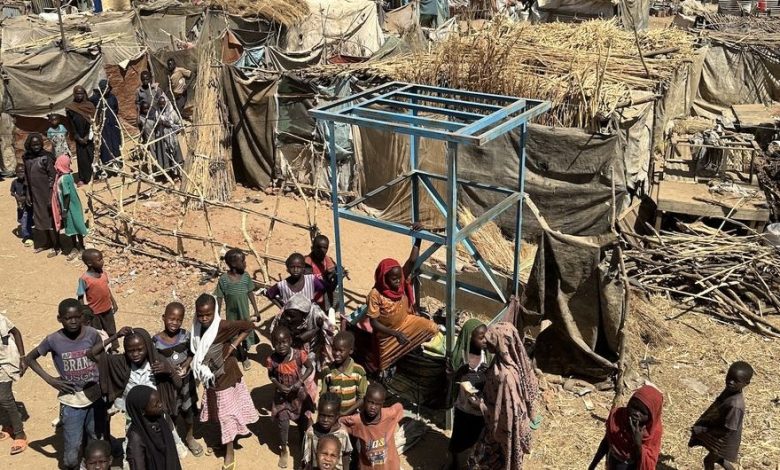UN Agencies Warn of Imminent Starvation Risk in Sudan’s Darfur Region

OCHA
UN agencies issued a joint warning that time is running out to prevent starvation in Sudan’s Darfur region due to intensifying clashes around the northern capital of El Fasher, which are hindering efforts to deliver lifesaving aid.
Since fighting erupted April 2023 between rival militaries, Sudan has witnessed shocking levels of violence, plunging the country into a devastating humanitarian and protection crisis.
Close to 25 million people – more than half the population – are estimated to need assistance, with approximately 17.7 million people facing “acute” levels of food insecurity.
The crisis, described as being of “epic proportions” by the UN Office for the Coordination of Humanitarian Affairs (OCHA), is exacerbated by limited access to vulnerable communities due to ongoing fighting and authorities’ restrictions, particularly in Darfur, while the fighting rages on between the Sudanese Armed Forces (SAF) and the Rapid Support Forces (RSF).
The latest escalation of violence around El Fasher has halted aid convoys from Chad’s Tine border crossing as authorities in Port Sudan are preventing aid transport via Adre, the only other viable cross-border corridor from Sudan’s western neighbour.
Desperation and dire conditions
Michael Dunford, regional director for Eastern Africa at the UN World Food Programme (WFP), stressed the desperation of civilians caught up in the fighting.
“Our calls for humanitarian access to conflict hotspots in Sudan have never been more critical. WFP urgently requires unrestricted access and security guarantees to deliver assistance to the families struggling for survival amid devastating levels of violence,” he said.
“The situation is dire. People are resorting to consuming grass and peanut shells. If assistance does not reach them soon, we risk witnessing widespread starvation and death in Darfur and across other conflict-affected areas in Sudan,” he warned.
The senior WFP official stressed that humanitarians must be able to use the Adre border crossing and move aid across frontlines from Port Sudan to reach people throughout Darfur.
“Nearly 18 million people face acute food insecurity, 14 million of them children, and over 70 per cent of hospitals are no longer functional amid a rise in infectious diseases – this catastrophic situation must not be allowed to continue,” said High Commissioner Türk.
Echoing those concerns, the UN Children’s Fund (UNICEF) said that some 8.9 million children are suffering from acute food insecurity; this includes 4.9 million at emergency levels.
“Almost four million children under five are projected to suffer from acute malnutrition this year”, including 730,000 from life-threatening severe acute malnutrition, UNICEF said in a statement on Sunday.
“Almost half of the children suffering from severe acute malnutrition are in areas that are hard to access” and where there is ongoing fighting, noted UNICEF Deputy Executive Director, Ted Chaiban.
“This is all avoidable, and we can save lives if all parties to the conflict allow us to access communities in need and to fulfil our humanitarian mandate – without politicizing aid.”



